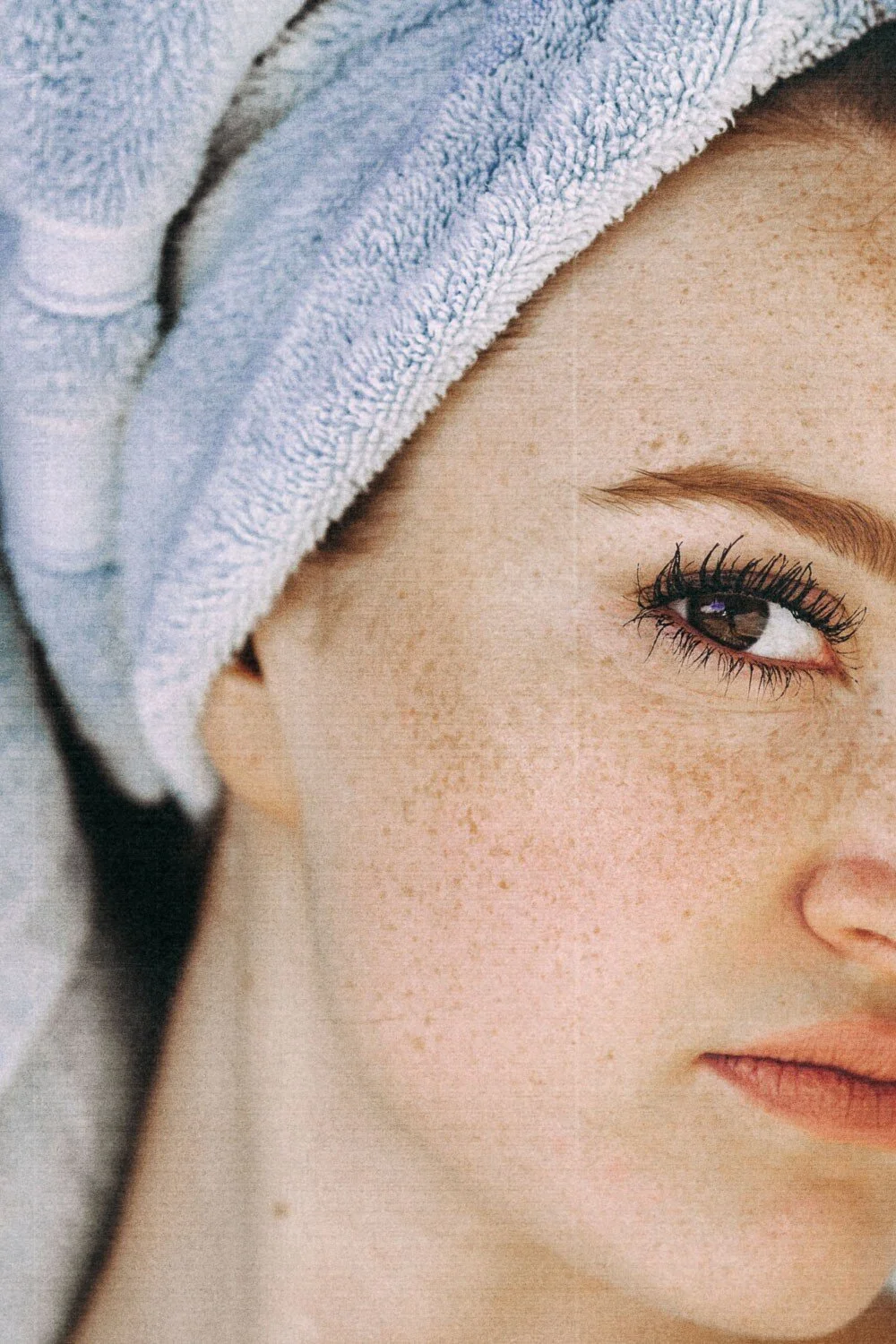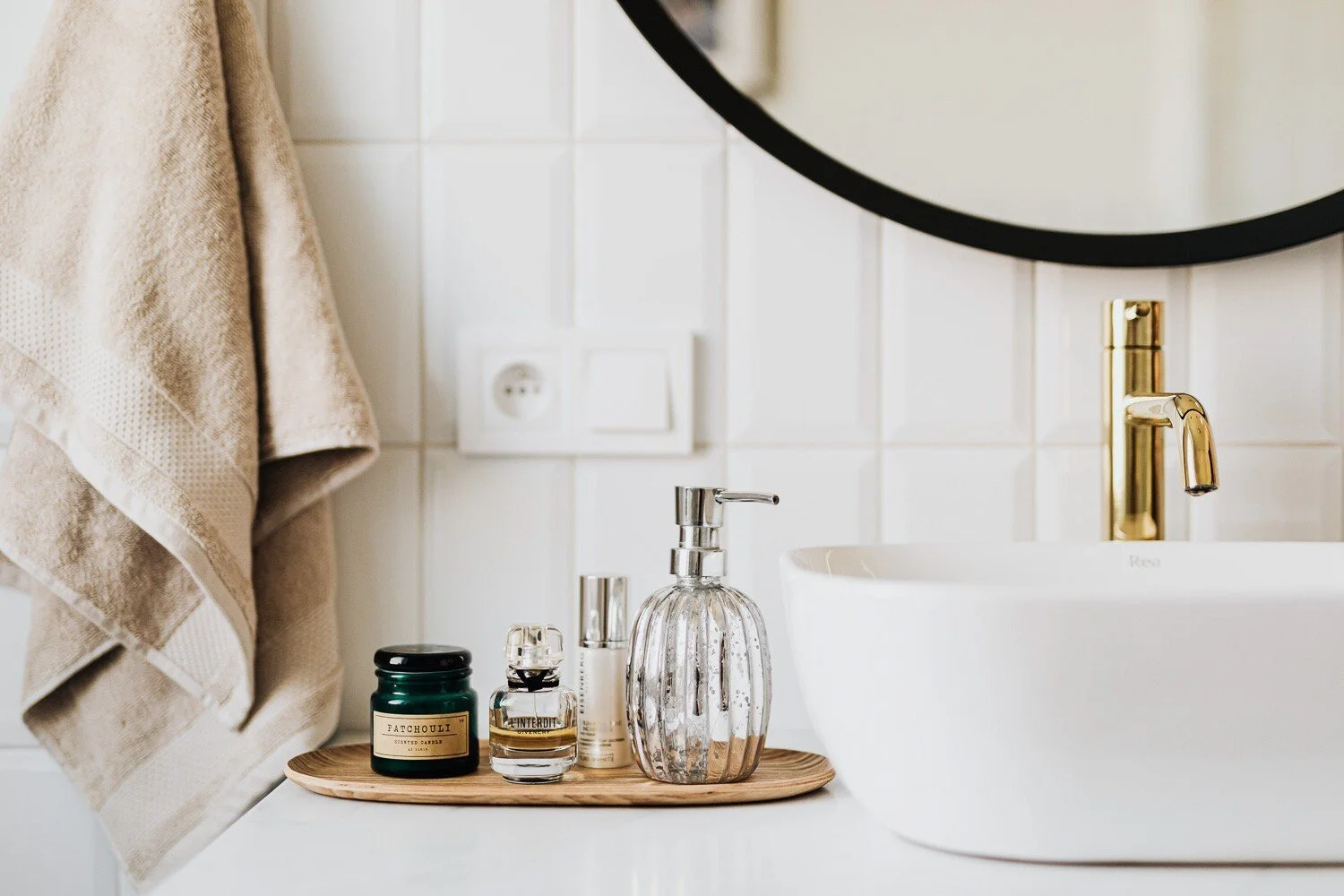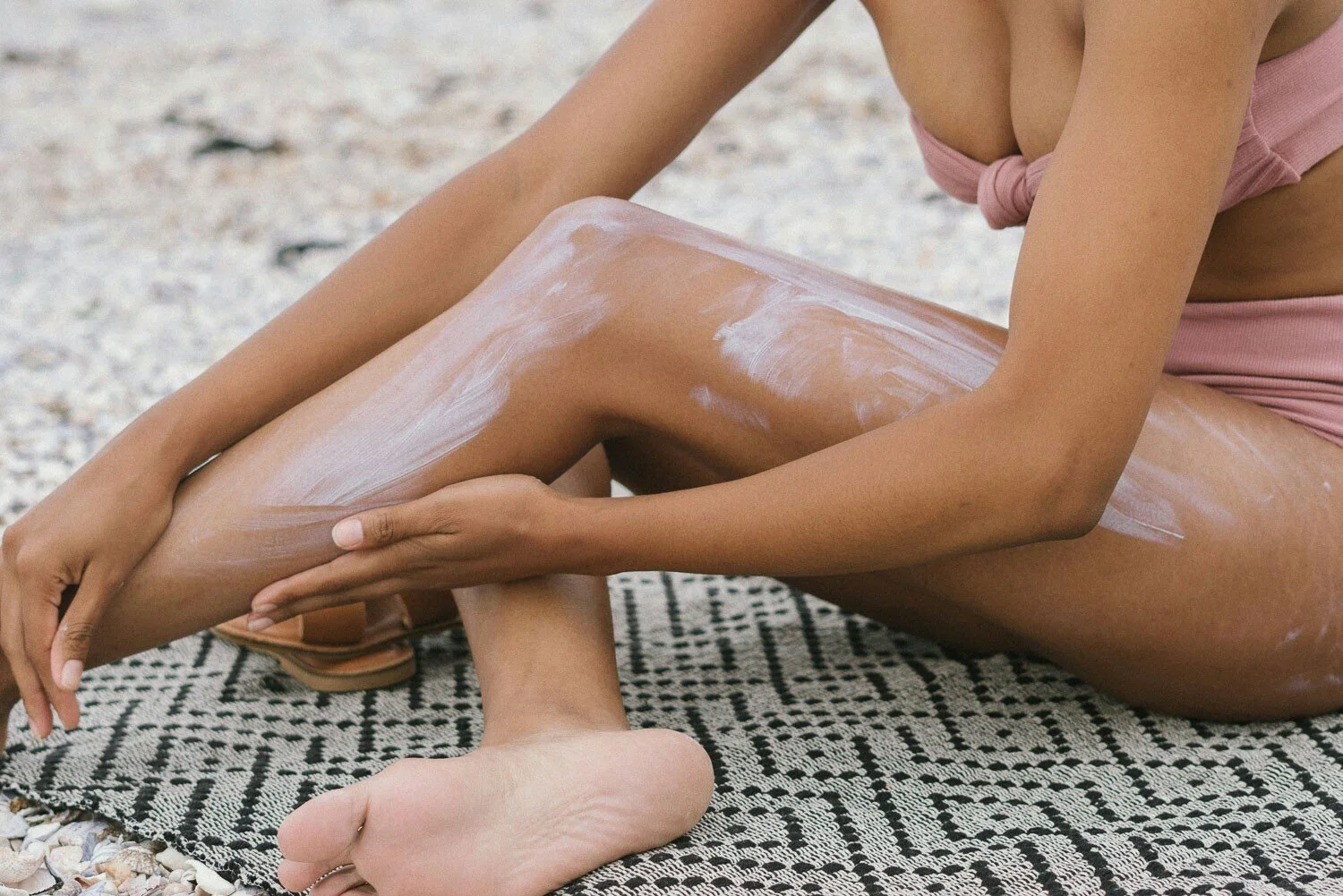6 Skin Care Insights I Learned from a Cosmetologist
This blog post is a bit different from my usual ones. After seeing a cosmetologist recently, I wrote down some notes in a journal-style format (just for myself to remember). I thought, why not share those honest, raw thoughts and reflections with you?!
If you don’t want to read through my personal notes, here’s a summary (otherwise scroll down):
I saw a cosmetologist recently and got a classic facial. During my time with her, she shared some unconventional advice with me that I certainly didn’t expect, and which reshaped my approach to skin care:
- Reevaluating intensive treatments: More intensive and frequent treatments aren’t always necessary or beneficial. When considering a specific treatment, it’s important to keep your schedule and personal needs in mind to make sure the treatment will actually be effective.
- Active ingredients aren’t always beneficial: This one is so important! There seems to be a common rush and general blanket recommendation towards using potent, active ingredients in skin care like retinol and Vitamin C (especially for anti-ageing purposes). That’s not always helpful. For example, for someone like me with very (!) sensitive skin, the advice my cosmetologist gave me was to focus on calming and balancing my skin first and dealing with inflammation, before incorporating any active ingredients. Approaching your skin care regimen with a tailored and personal approach is key.
- Anti-aging starts early: That’s why it’s called ANTI-ageing. There’s value in early preventative care. For example, start using eye cream at 25 (I wish I had known this or had had more awareness back then). But it’s never too late. Start wherever you are now.
Additional Insights:
- Simplifying skin care: Simplifying my skin care routine to focus on sensitivity and inflammation first is a gentle approach. Related to my point above, skin care has to be personalized, and you can’t rush it. Keep a long-term, patient view.
- Holistic health connection: I’ve always known that there’s a direct link between gut and skin health. Skin care is about more than external products, lotions and serums. Seeing my cosmetologist was a good reminder that achieving beautiful skin begins with internal health. If there are any “magic” secrets to radiant skin at all, I believe they would be to heal your gut, and eat a balanced diet rich in nutrients, specifically bioavailable collagen, high-quality omega-3s, and grass-fed organ meats for their superpower nutritional benefits to both gut and skin health.
- Trust yourself: My experience reinforced what I had already known. Self-awareness and paying attention to your own body are always going to be the key to knowing what’s good for you. Understanding your skin's unique needs and reactions lets you make more confident choices about skin care products and routines. No one knows you better than you.
Seeing a cosmetologist was a good reminder that we don’t always need to follow common advice, no matter how popular and “in our face” it is. It’s way more important to take a personalized approach to skin care (and any other self-care and health topic for that matter).
Pay attention to your body and your needs, and be patient.
Here’s the long, personal, journal-style version:
I saw a cosmetologist/skin expert today and got a facial. Here’s how it went and what I learned:
I got the ‘classic facial’. I first asked about ultrasound scar treatment, but she said that would only be worthwhile if I could come back every two weeks. But since I’m leaving Germany in two weeks, that won’t work, so we decided to go with the classic treatment (which also included a skin consultation/her letting me know what my skin is like/my skin type, and what it needs).
I have very, very sensitive skin (she said it several times, and even shaping my eyebrows made my skin react).
Don’t bother with retinol and Vitamin C and any active ingredients like that until my skin is balanced again, focus on calming it first and dealing with redness, scars, irritation, inflammation.
However, DO use an eye cream (should/could have started at 25!). Damn. Well, that doesn’t make me feel any better, too late for that now anyway. Wish someone had told me this stuff earlier and made me aware of anti-aging/that anti-aging starts when you’re young, not when you’re old. That’s why it’s called ‘anti’-ageing.
Skin health starts in the gut –> until my gut is healed my skin can’t be perfect. Already aware of that, and actively working on it!
Try zinc on my nose (and eat it/supplement)
She started with a cream cleanser, then gentle exfoliation, then foaming cleanser (I believe). Then warm/hot/humid air to open up pores. After that she squeezed a few “pimples”, then corrected/plucked my eyebrows into shape (they actually look really good now). After that she massaged my face/skin (also neck and a little bit of décolletage) with some thick creamy solution/moisturiser, then followed with a rich/thick and cooling face mask. She wiped off the mask, then finished with a lot of moisturiser (very generous amount).
She asked if any of the products irritated/burned on my skin (the exfoliation did a tiny bit, maybe more stimulating that irritating; the moisturiser she used for the massage and the face mask afterwards stung a little (maybe because she had squeezed my skin a little bit before that) → my skin really is sensitive.
My skin was a bit red and looked quite oily after the treatment. I wiped off some of the excess moisturiser after, it felt too much and too oily/greasy for my liking. But maybe it was supposed to be like that, hydrating and nourishing, and maybe it would have slowly soaked in/been absorbed by my skin.
She used Avene for the treatment.
She recommended La Roche Posay for sunscreen because they have different ones for different skin types.
She said to use spf 50 sunscreen and something light like a gel
She recommended and sold me some Dr Grandel ‘sensitive’ ampoules (can use ½ of one IF I can somehow manage to seal it well - they’re intended to be used up all at once (including the neck and décolletage), but since my neck doesn’t need it I could use half and the other half the next day. But since they contain active ingredients that probably react with oxygen it’s best to seal it well, if somehow possible (they’re glass, so it might be a bit tricky). She said to use one ampoule once a week.
It was good and a good reinforcement of what I had guessed/thought my skin type would be, but wasn’t 100% completely sure about → mixed skin (Mischhaut) and very sensitive
She said to see a dermatologist for the scarring on my chest and for my nose
She thinks that with the redness, the skin must have been exposed to either very cold or very hot conditions once, some extreme temperature that made it become so inflamed/scarred/red, and that my skin there is very thin and peeling…
The biggest takeaway was probably that skin health and great looking skin comes from within. We can easily fall into the trap of thinking that ‘this serum’ or ‘that moisturiser’ or ‘that face cream’ is gonna be the magic pill and magically be the secret to our beauty and skin success. Maybe retinol will do the trick, or a vitamin c serum will give us that glow. If we’re thinking about Vitamin A (retinol) and Vitamin C and even zinc (topically applied), why wouldn’t we first think about getting enough of it in our diet?
I think there are maybe 3 “magic” ingredients we can consume (internally/orally) that will play a big role in giving us that glow and keeping us looking young, youthful and fresh: collagen (i.e. bone broth (or high quality, bioavailable collagen powder)), omega 3s (high quality fish oil supplement to supplement/support diet, cold water fatty fish), and liver (and sometimes other organ meat) from grass-fed, pasture-raised animals (for zinc, retinol/Vit A, iron, and almost every other vital nutrient that we might not be getting enough of and/or that might be hard to get through other things in our diet). Also: water!
Another takeaway: we know ourselves best. A dermatologist or cosmetologist can support us, help us, guide us, give us tips and recommendations, but in the end we probably already know; and we know better than anyone else what’s good for our skin, what products we tolerate and which ones we don’t, what richness/intensity of moisturiser works for us, etc. We need to trust that. We see ourselves every day and we experience every day what our skin feels like, needs, how it reacts, etc…
For example, I know that experimenting too much and trying out too many products isn’t good for my skin and makes me break out in tiny little bumps and pimples. I also know that anything that feels too rich/thick/greasy gives me those little bumps/pimples as well. And of course hormones! Changes in my cycle, and my gut, play a huge role too. I might be able to experiment a little bit more and give myself a little bit more freedom/wiggle room if I’ve been sleeping well, eating well, and am in the follicular phase of my cycle. If I’m in my luteal phase however (and maybe also haven’t had the best sleep or diet lately), then I’ll likely do more harm than good by switching up my skin care routine.
Overall, it was good, but I wouldn’t do it every month or so. Maybe once a year…? It felt nice, treating myself, nice for wellbeing and mental health and the general feeling of being looked after and doing something nice for myself and my skin. But in terms of actual value for my skin (i.e. treatment results), I’m not sure it’s worth going that often… Next, I would see a dermatologist or someone who can help with specific scar treatments etc. and try that.
And there you have it. What did you think of this style of blog post format? What are your thoughts on getting a facial, and any of the other reflections I shared above?




